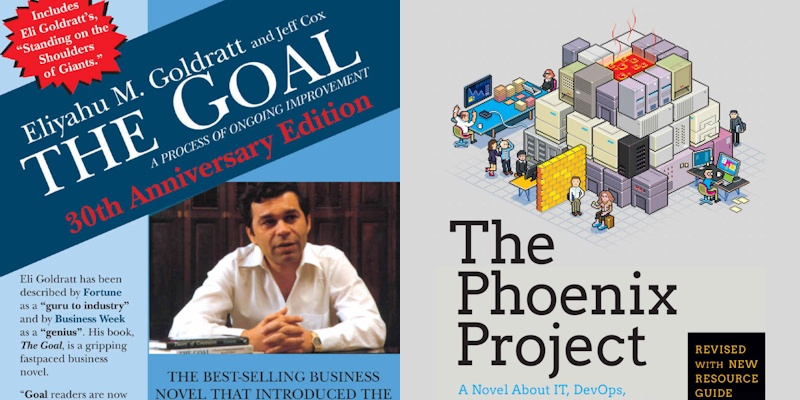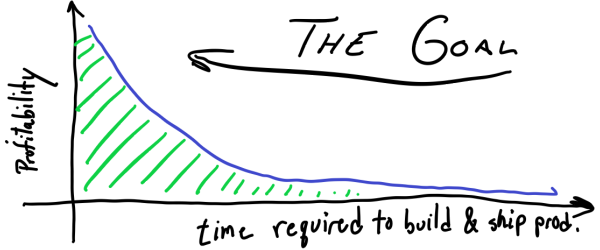
One of the more interesting cultural movements in IT is what I’ve seen towards DevOps. At its core, the goal of DevOps is to maximize profitability by shortening product delivery time, but that would be an overly simplified explanation of such a robust movement. For deeper insights into how to maximize the value of DevOps for your organization, there are two fictional business management books that every IT leader should have in their library.

The Phoenix Project (2013), a popular business fable about DevOps, is an adaptation of The Goal by Dr. Eliyahu Goldratt (1984). The Goal focuses on manufacturing while The Phoenix Project focuses on IT.
Both books discuss how managers in these intensely competitive industries can accomplish their goal of increasing profit by focusing on:
- amplifying the flow of work through bottlenecks
- monitoring feedback loops throughout production
- fostering organizational learning throughout production
Anyone familiar with the Toyota Production System has heard this before.
Although these two timeless books share a common theme, there are a couple of differences that stood out to me.
Difference 1: Bureaucracy
In The Goal, Alex, the main character, has absolute authority over his factory. There is no board of directors or managers that would need to approve his decisions to buy, change, or modify anything. If he wants to throw out the rule book, then he does. Not so, in The Phoenix Project.
The main character in The Phoenix Project, Bill, is VP of IT Operations. If he wants to do anything, he must first get the approval from many stakeholders ranging from marketing to security leadership. This is the source of a lot of pain for Bill, and for many readers. Alex, however, could very well burn his factory to the ground without hearing a word from upper management.
Successfully navigating bureaucracy is the crux of any change management scenario. That this was mostly ignored in The Goal leads to differing story arcs for the books. Bill must build trust with his stakeholders before he embarks on a journey to upend the status quo. Alex elects to keep everyone outside his factory in the dark. The Goal misses a valuable opportunity to teach the reader the importance of building trust with people who write your checks.
Difference 2: Organizational Values
What is so often overlooked - in real life and these stories - is that culture is the bi-product of the values that we live every day. A clear, intentional, and shared set of values creates a framework for decision making that aligns with the organization’s goals.
It isn’t entirely surprising to see that the book that arrived first, The Goal, treads lightly here, where the next iteration, The Phoenix Project, was firmer. Where The Goal says nothing of culture or values, The Phoenix Project focuses on what organizational values promote DevOps culture. I’d tell you them here, but I’d urge you instead to go read these insightful books and learn for yourself!
PS – for those of you who like these, there is also a graphic novel version of The Goal. Check it out here.

